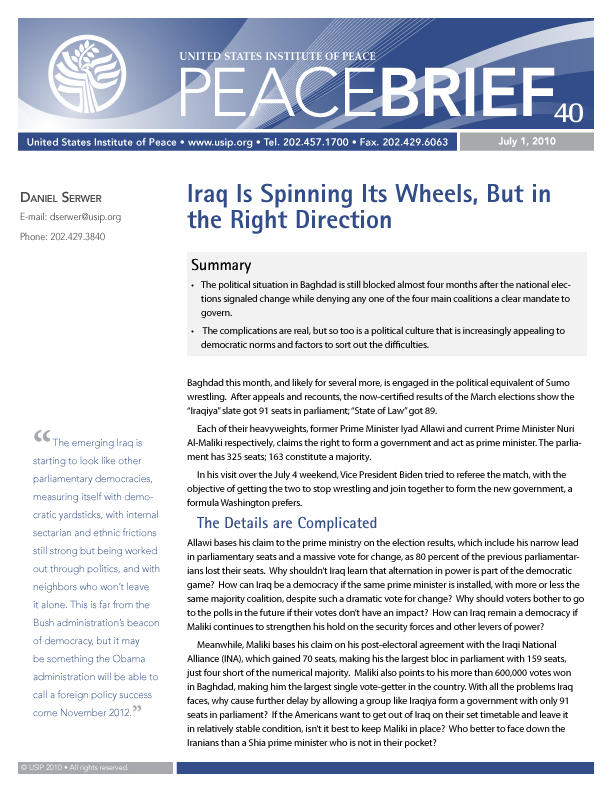Iraq is Spinning Its Wheels, But in the Right Direction
The emerging Iraq is starting to look like other parliamentary democracies, measuring itself with democratic yardsticks, with internal sectarian and ethnic frictions still strong but being worked out through politics, and with neighbors who won’t leave it alone. This is far from the Bush administration’s beacon of democracy, but it may be something the Obama administration will be able to call a foreign policy success come November 2012.

Summary
- The political situation in Baghdad is still blocked almost four months after the national elections signaled change while denying any one of the four main coalitions a clear mandate to govern.
- The complications are real, but so too is a political culture that is increasingly appealing to
democratic norms and factors to sort out the difficulties.
About this Brief
Daniel Serwer is vice president for Centers of Innovation at the United States Institute of Peace. These views, based on talks with dozens of Iraqi politicians in Baghdad during June 2010, are his own.



